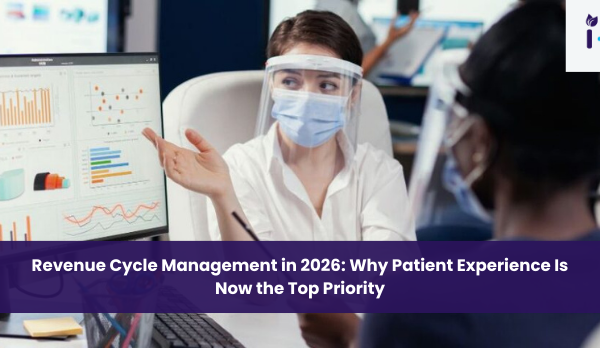Technology spending on revenue cycle management (RCM) is experiencing strong growth, driven by healthcare providers’ increasing need to streamline billing, claims, and overall financial processes. This demand is fueled by rising patient admissions and the complexity of managing revenue in hospitals and clinics, leading to the adoption of advanced RCM solutions across the healthcare sector.
Key drivers for the market include the growing adoption of cloud-based RCM systems, which offer scalability, integration, and ease of deployment. These systems, especially in large markets like North America, are favored for reducing operational costs and improving efficiency. North America leads the global RCM market, valued at approximately USD 74.9 billion in 2023, thanks to advanced technologies and the presence of major players like Epic Systems and R1 RCM. These companies offer end-to-end RCM solutions that cater to the evolving needs of healthcare organizations.
In Europe, the market is expanding as hospitals and healthcare providers focus on improving their financial technology infrastructure, while Asia-Pacific is expected to be the fastest-growing region, driven by increased awareness of RCM benefits among hospitals.
Key sectors within RCM include claims and denial management, medical coding and billing, and clinical documentation improvement (CDI). Claims and denial management hold a dominant position, with innovations helping healthcare providers reduce claim rejections and optimize their revenue cycles
Here are more detailed insights on the technology spending within the revenue cycle management (RCM) market
Market Growth and Trends
– Rising Demand for Automation: Automation in RCM is one of the key areas driving market growth. Healthcare providers are increasingly investing in automated solutions for tasks such as claims management, medical billing, coding, and denial management. These technologies not only reduce manual errors but also speed up payment collection processes. Automation helps improve overall financial health by streamlining these labor-intensive tasks.
– Artificial Intelligence and Machine Learning: AI and machine learning tools are gaining traction in the RCM space for predictive analytics, patient payment behavior tracking, and claim denial predictions. These technologies enable providers to forecast revenue trends and identify potential roadblocks before they arise, improving cash flow and reducing revenue leakage
Integrated vs. Standalone Platforms
Healthcare organizations have the choice between integrated RCM systems, which merge with other healthcare operations like electronic health records (EHR), and standalone platforms, which focus solely on financial management. Integrated platforms are seeing higher adoption rates as they provide a seamless experience across different departments, which improves operational efficiency
Cloud-Based Systems
Cloud-based RCM solutions are becoming increasingly popular due to their scalability and lower upfront costs compared to on-premise systems. Cloud technology also enhances data security, making it easier for healthcare organizations to comply with regulations like HIPAA.
Regional Insights
– North America: The RCM market is highly concentrated in North America, particularly in the U.S., where healthcare providers are rapidly adopting RCM technology to manage the complexities of healthcare reimbursements and patient billing. A significant portion of the spending in this region is directed towards automation and AI-driven technologies, which help mitigate revenue risks
– Asia-Pacific: This region is expected to be the fastest-growing due to increased awareness and adoption of RCM technologies. The healthcare infrastructure in countries like India and China is rapidly modernizing, leading to an increased demand for efficient financial management solutions
–Europe: The European RCM market is seeing growth, with countries like Germany, France, and the U.K. investing in digital healthcare solutions to manage increasing patient admissions and complex billing systems
Challenges and Opportunities
– Challenges: The major challenges in this market include regulatory changes, compliance requirements, and the need for continuous upgrades in technology. Additionally, some healthcare providers are hesitant to adopt new RCM technologies due to concerns over initial investment costs and the complexity of implementation
– Opportunities: The increasing complexity of healthcare systems, including value-based care models, is creating opportunities for RCM vendors to provide solutions that offer end-to-end visibility into the revenue cycle. Moreover, partnerships between healthcare providers and tech companies are also driving innovation in this sector
In conclusion, the RCM market is seeing significant investments in technology, driven by the need for greater efficiency, cost reduction, and improved patient experiences. The adoption of cloud-based, AI-powered, and automated solutions is expected to shape the future of revenue cycle management, particularly in regions like North America and Asia-Pacific, where healthcare organizations are focused on optimizing their financial operations.
At I-conic Solutions, we remain committed to helping you stay ahead in this fast-paced market. As experts in healthcare innovation, we provide insights and solutions to navigate these changes with confidence. Whether you’re looking to optimize your revenue cycle or streamline your medical device manufacturing processes, our team is here to guide you every step of the way.
Thank you for subscribing to our newsletter. Stay tuned for more updates on industry trends and innovations!





